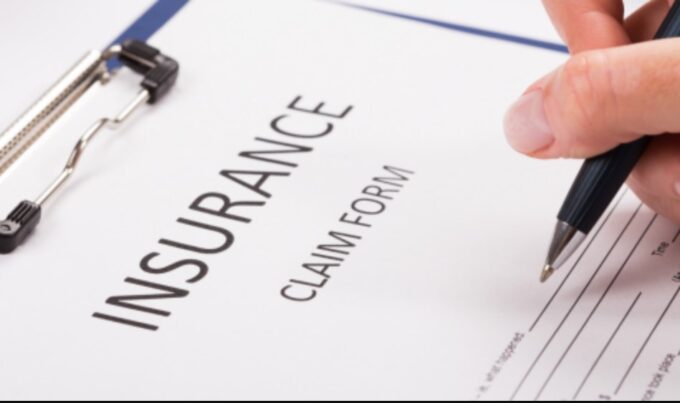As the owner of a small business, you are tasked with caring for your employees, keeping product quality up, making strides towards expansion, and several other factors. Running a small business is challenging. Because you can’t predict everything, you should have specific essential insurance policies to protect your business, yourself, and your employees from certain unforeseen instances. Insurance is a vital part of risk management for every business, and these three policies are most important.
1. Commercial Property Insurance

There are numerous types of insurance policies out there, and HelpAdvisor.com provides expert details about most insurance policies, including commercial property insurance. This type of insurance is crucial for all businesses that operate from commercial property. So, unless you run your small business from home, you will need to purchase commercial property cover.
The policy will protect your business premises from catastrophic disasters that can interrupt business functions. It will also protect the contents held within the property, protecting you from unpredictable instances such as theft and others.
2. General Liability Insurance
General liability insurance will keep you covered in instances of costly lawsuits that can arise when anyone is injured on your premises, from customers to your product and your valued employees. No matter how safe your business environment is and what level of health and safety you have in place, workplace injuries and slips and falls are pretty common.
The cost of a lawsuit can have you closing your business if you don’t have insurance to protect you from the costs. Your policy will cover the claim payout and the legal fees involved in such instances that are also often unavoidable. However, if you buy a small business insurance it will protect you from the costs incurred by lawsuits.
3. Loss Of Business Income Cover

Loss of business resulting from unforeseen and unavoidable circumstances is a significant concern for small businesses that don’t have absolute liquidity to protect them from a lack of ability to operate. Such instances can include fires, flooding, and various others. The policy will cover your net profits, which are your actual profits sustained when you go out of business for unpredictable reasons.
Therefore, this policy will protect your income and that of your valued employees when going out of business for a certain period, which can essentially keep your small business afloat until you can recover from the damages that caused the halt of function in the first place.
It is undeniably vital to purchase insurance for your small business to protect your most proud asset. However, when choosing insurance policies, you will need to compare deals from different insurers and assess policy terms to know what you are covered for. It is never a good idea to prioritize cheap premiums over maximum coverage, as this decision will set you back when the time comes that you need to claim.
Once you have the primary types of insurance to protect your business, you should later consider additional policies, such as cyber liability insurance, workers’ comp insurance, umbrella insurance, and others to enhance your protection further.
4. Professional Liability Insurance
Also referred to as errors and omission insurance, professional liability insurance is there to protect you and your business in the event of failure to perform or mistakes that may lead to negligence claims. Professional liability insurance differs from company to company, and there is no one-size-fits-all policy. Each industry has its own risks and concerns that fit the specifics of the operation; therefore, each business should customize its policy as needed.
5. Workers’ Compensation Insurance

Accidents happen, and workers may find themselves getting injured at work, without physical labor, but merely walking down the passage, slipping-and-fall. To protect the business in such cases, the workers’ compensation insurance covers any disability, medical treatment, and death benefits, provided that the employee had no significant contribution to the accident while at work.
Accidents are unpredictable; should the employee experience serious injuries that lead to chronic medical conditions, the claim could be very high. Therefore, it is best to get covered from the day you hire the first employee as a small business.
6. Home-Based Business
Like many start-up companies, business owners typically run their businesses from home until they can afford to move to a suitable location for business. Although business is conducted in your home, unlike commercial property insurance, your homeowner insurance does not cover business operations. To ensure that all business essentials are covered, you may need to consult your insurance for additional coverage to protect your home-based business.
7. Vehicle Insurance

Depending on the nature of the business, you may have company vehicles used by you as the business owner and possibly employees. Accidents happen every day on the road, and one of your company vehicles may, unfortunately, be involved in one. This is where the business vehicle insurance comes into play, protecting you from any liability caused by accident.
Although comprehensive insurance covers third-party vehicles, it is critical to confirm your insurance covers any third-party injuries. Employees may be in a position where they need to use their cars at the behest of the company; in the likely event they are involved in a car accident during this period, the business vehicle insurance should step in and cover all damages and liability.
8. Business Interruption Insurance
In any business, several occurrences may arise and affect business continuity for the short or long term. An example of these interruptions includes natural disasters or catastrophic events. Depending on the type of business you run, chances are, during the interruption, you may suffer financial and property loss. During the time of the interruption, with the loss of income, the business needs capital to restore operations and possibly back pay salaries.
Business interruption insurance is there to cover the company and compensates for the loss of income. A catastrophic event or lawsuit may interrupt business operations, and being prepared for the unknown could save the business from a significant financial crisis. As early as day one, speak to the insurance company and tailor your business interruption insurance policy according to the physical location, operation type, and equipment used.









